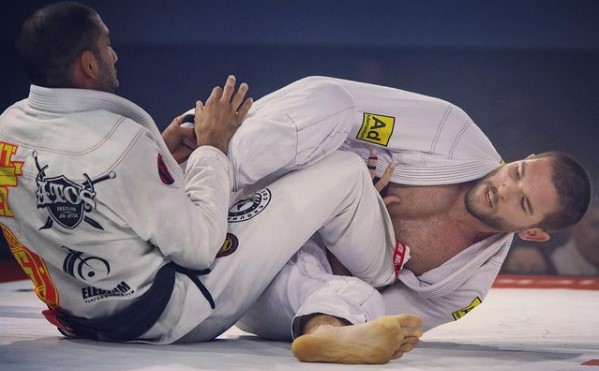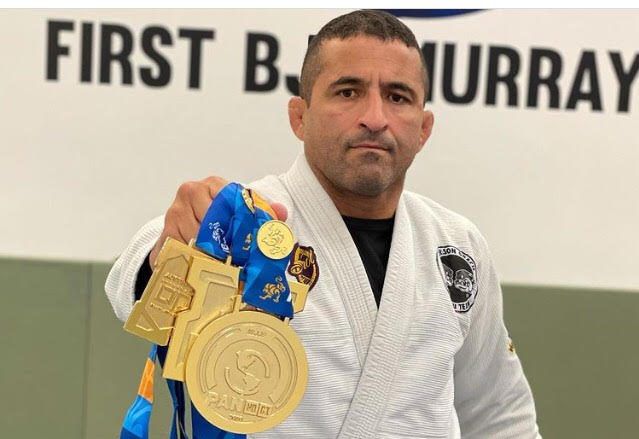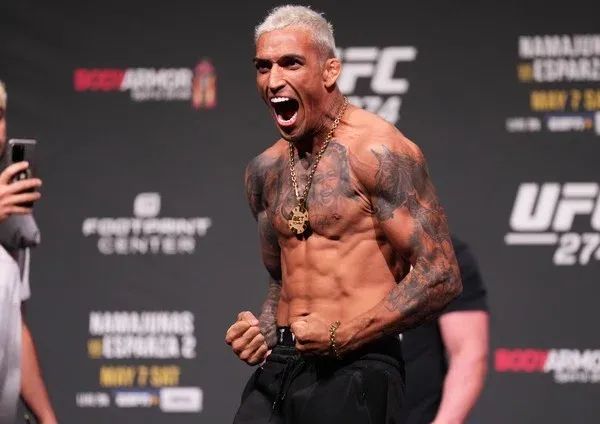
Gustavo is a Jiu-Jitsu black belt. Photo: Personal archive
Until he was able to stabilize his life financially through BJJ, Gustavo Andrade had no easy times. Born in Duque de Caxias, a municipality in Rio de Janeiro state, this black-belt traveled a long road of sacrifice, pain and, of course, success. In 2013, unaware of what would happen four years later, the Mountain View, Calif. resident was running raffles on social media to be able to continue training and competing at a high level.
The effort paid off later in one of the most popular BJJ hubs. Now also a teacher and legal resident of the U.S., Gustavo has begun enjoying the benefits the sport can offer to those who refuse to give up. If he had accepted the opinion held by some people close to him that “jiu-jitsu is not a job,” things would have turned out differently. At 29 and full of goals to reach, this student under Fábio Andrade gave an interview where he went over his trajectory.
“Many times, I thought of quitting,” he said. “People close to me thought that BJJ is not a job but, in reality, they had this view because they were not inside BJJ like me. My mom, before she died, also thought that BJJ was dangerous to me, but the sport ended up being the best decision of my life, and wherever she is, she will see that everything I have today is because of the sport.”
Gustavo added: “I used to life in Duque de Caxias. I used to run raffles to be able to fight. It was a ton of hardship — and now it has all changed! Today I’m living a stable life here, in the United States. Teaching BJJ has become my main source of income; I’m able to live and eat well, and I even save some money. But given that I’ve been a hard worker since I was little, I also work on some food delivery apps in my spare time. I’m always working.”
Unlike most Brazilian teachers, Gustavo arrived in the U.S. knowing how to speak the language, which helped. “I got here right away communicating really well with everybody; it’s really nice understanding and talking jiu-jitsu with the Americans,” he said. “The teachings from my physical education college helps me manage my classes in such a way that I can cater both to the competitive public and to the public that trains as a hobby, in a professional way that’s very different from the jiu-jitsu that was taught in the past.”
Having now lived in the U.S. for four years, Gustavo went on to compare the states of the sport in Brazil and in his adoptive home. “I believe in the U.S. jiu-jitsu is being more valued as a profession, and consequently your recognition ends up being greater,” he said. “But in regard to training, I believe jiu-jitsu in Brazil is tougher due to the fact that it’s in our nature, especially those who came from the bottom like me, to fight to survive. It’s easy to channel that aggressiveness necessary to win a fight, whereas in the U.S. jiu-jitsu is more commercial. There are good competitive teams, but it’s still different from Brazil.”
The owner of a ferocious guard and a swift wrist fold, Gustavo said he is ready for a superfight. With a record of two wins in Fight to Win, a promotion specialized in jiu-jitsu superfights in the U.S., he has some guys in his crosshairs. “I would really like to fight Otávio Souza, especially after he won the Pan as a medium heavyweight in 2020 and against Lo, which has always been a reference in the sport. Nothing better than facing your idols, which is the case with Lo.” Gustavo added, “If I had to mention someone from the new generation, it would be Gabriel Almeida. But, as always, I’m ready to answer any call. I continue to train hard!”




